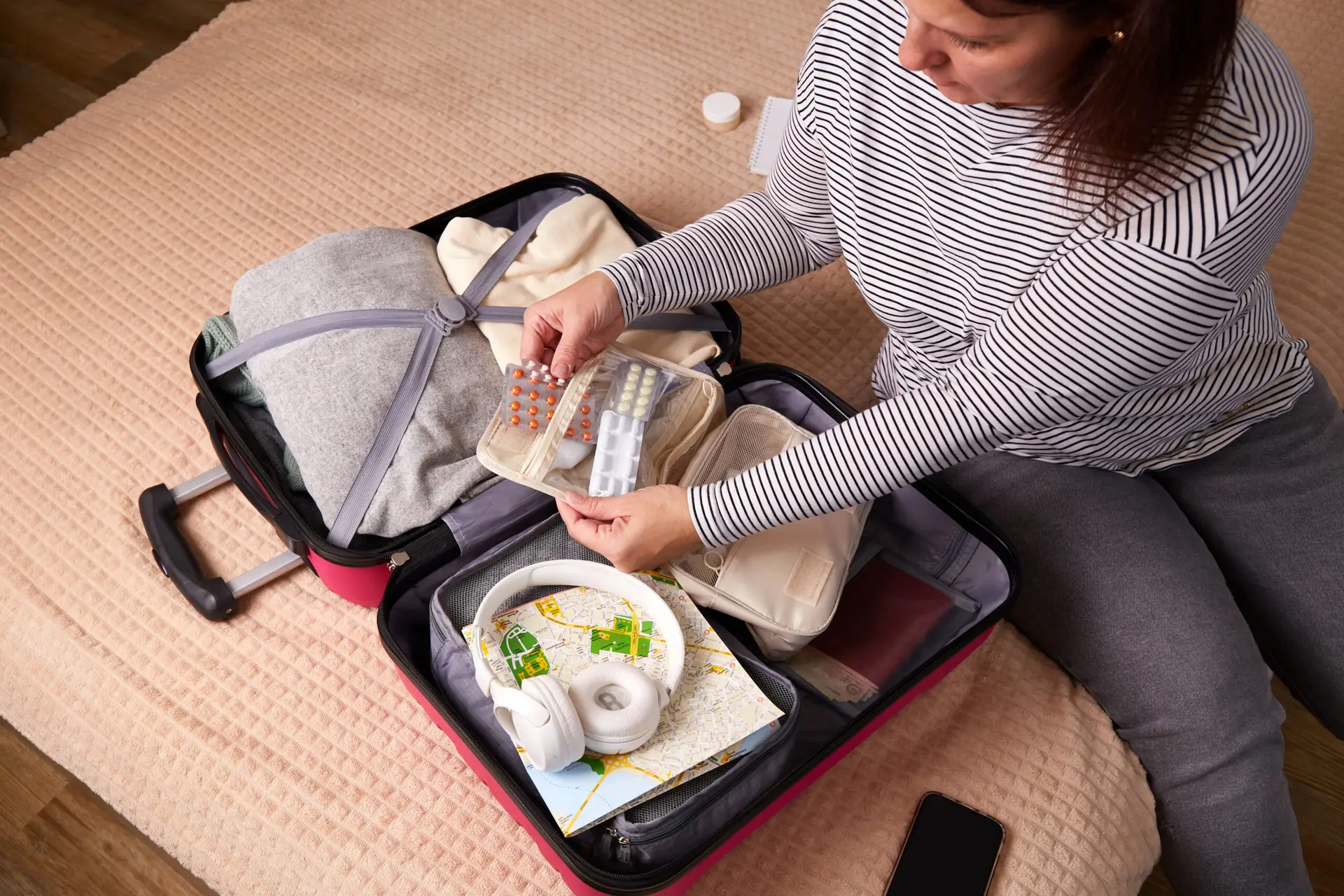Traveling Abroad? What You Need to Know About Banned Medications
When planning an international trip, most travelers think about passports, flights, and packing lists. But one detail often overlooked can cause major stress at the border: your medicine. What’s perfectly legal and available over-the-counter in the United States may be strictly banned abroad, sometimes with harsh penalties.
This post is not medical advice, and rules can change quickly. Always check the most up-to-date information for your specific destination. Think of this as a reminder and starting point, so you can avoid surprises and stay safe.
Commonly Banned Medications Abroad
Here are a few categories of medications that are often restricted or banned in popular destinations:
- Stimulants (including ADHD medications like Adderall or Ritalin)
- Banned or heavily restricted in: Japan, Saudi Arabia, the United Arab Emirates.
- Even small amounts can lead to confiscation or penalties.
- Strong painkillers containing codeine or morphine
- Restricted in: Singapore, Japan, Greece, and Indonesia.
- Some countries require special permits or prescriptions translated into the local language.
- Anti-anxiety and sleep medications (like Xanax, Valium, Ambien)
- Controlled in: Japan, UAE, and some European countries.
- Travelers may need prior approval or may be denied entry with these drugs.
- Inhalers and over-the-counter medicines
- Some common decongestants (like Sudafed with pseudoephedrine) are banned in Japan and Mexico.
- Certain inhalers or asthma medications may need special clearance in some Middle Eastern countries.
- Medical marijuana or CBD products
- Even if legal at home, these are strictly illegal in much of the world, including Asia, the Middle East, and parts of Europe.
How to Check Ahead of Time
- Review your destination’s embassy or consulate website. Most have clear guidelines on what medicines are restricted or require approval.
- Search the International Narcotics Control Board (INCB), which provides general guidance.
- Ask your doctor or pharmacist. They may have access to updated travel medicine resources.
- Check airline and airport websites. Some provide notices about restricted medications.
What If You Really Need It?
- Bring official paperwork. Carry your prescription in the original container with your name clearly visible. A letter from your doctor explaining the need for the medication can help.
- Apply for approval. Some countries (like Japan) require a “Yakkan Shoumei” import certificate before you arrive with restricted medications.
- Look into alternatives. Ask your doctor if a different medicine may be safer to carry for your trip.
- Emergency exceptions. For life-saving medications like EpiPens or insulin, check ahead to ensure they’re permitted, and carry medical documentation in case of questions.
Extra Tips for Peace of Mind
- Pack only what you need in your carry-on, not in checked luggage.
- Keep medicine in original labeled containers.
- Bring translations if possible (for both the drug name and condition).
- Never assume something “over-the-counter” in the U.S. is fine abroad.
This information is meant to raise awareness, not replace your own research. Regulations vary by country, and they can change without notice. Before every international trip, confirm what’s allowed at your destination so you can travel confidently, safely, and stress-free.
A little preparation goes a long way. Check your medications as carefully as you check your passport as both are essential for a smooth trip.






